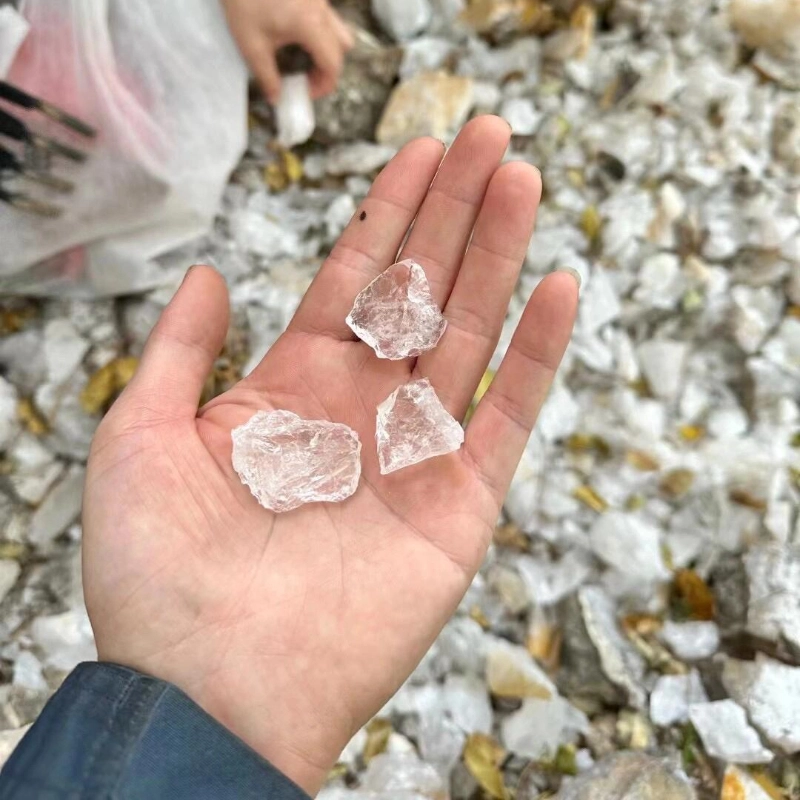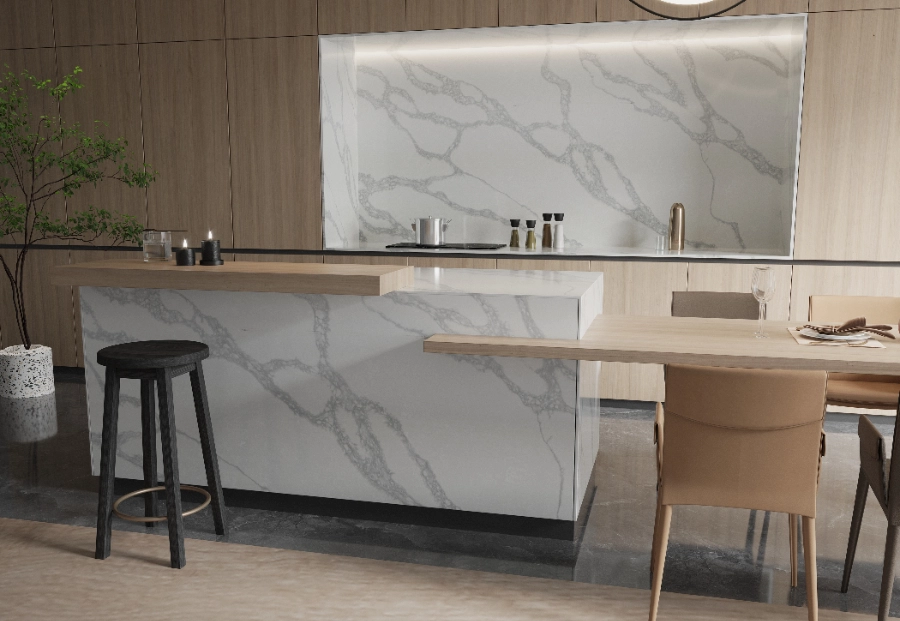
Is Quartz Considered a Natural Stone? The Full Explanation
2025-06-13 10:48
Introduction: Quartz Is Everywhere, But Is It a Natural Stone?
Quartz countertops have become a staple in kitchens and bathrooms around the world. Many people assume quartz is a type of natural stone—after all, it looks like one. But is that really the case? This article will help clear up the confusion between natural quartz (a mineral found in nature) and quartz countertops (a man-made product).
1. What Is Quartz?
Quartz is a natural mineral made of silicon and oxygen. It’s one of the hardest materials found in the Earth’s crust and is present in many rocks like granite and sandstone.
In its pure form, quartz is clear or white, but natural impurities can give it colors like rose, smoky gray, or amethyst purple. Because of its strength, quartz is used in everything from watches and electronics to building materials.
So yes, quartz itself is 100% natural. But that doesn’t mean all quartz surfaces are considered natural stone.

2. What Are Quartz Countertops Made Of?
Here’s where it gets interesting.
Quartz countertops are not cut directly from natural rock slabs like granite or marble. Instead, they are manufactured using a blend of:
Around 90–95% crushed quartz particles
Mixed with 5–10% resins and color pigments
These materials are blended together, shaped into slabs, then baked under high pressure and heat. The result is a solid surface that looks like natural stone but offers more consistency in color, texture, and strength.

Simple Answer: Quartz countertops contain natural quartz, but they are not natural stone surfaces. They are engineered materials.
3. Quartz vs. Natural Stone: What’s the Real Difference?
| Feature | Quartz Countertops | Natural Stone (e.g., Marble, Granite) |
| Material Source | Crushed quartz + resin | Direct from the earth |
| Pores | Non-porous | Naturally porous |
| Maintenance | Easy to maintain | Requires sealing |
| Look and Feel | Uniform and predictable | Unique and one-of-a-kind |
| Durability | Highly durable | Varies depending on the stone |
| Stain Resistance | High | Moderate to low |
Quartz surfaces offer a cleaner, smoother appearance compared to natural stone. Since the slabs are made in a controlled environment, homeowners get exactly the look they choose—without worrying about color variation or pattern mismatches.
4. Why People Think Quartz Is Natural Stone
The term "quartz" naturally makes people think of nature—and rightly so, since quartz comes from the earth. In showrooms or online product listings, quartz countertops are sometimes placed in the same category as granite or marble, which adds to the confusion.
But here's the key point: just because a product contains natural elements doesn't make the final product 100% natural.
Quartz countertops are best described as engineered stone surfaces, not natural stone. That distinction matters if you're choosing materials based on origin, sustainability, or even building codes.
5. Benefits of Choosing Quartz Countertops
Quartz countertops have become popular for good reasons. Here's what makes them such a strong choice:
Easy to Clean: Since the surface has no pores, it doesn’t absorb liquids. This helps resist stains from coffee, wine, and oils.
Strong and Long-Lasting: Quartz is harder than many natural stones and resists chips and scratches.
Consistent Appearance: Unlike marble or granite, which vary in every slab, quartz offers a repeatable pattern and color.
Low Upkeep: No need for yearly sealing. Just use mild soap and water for cleaning.
Design Flexibility: Manufacturers can create a wide range of colors and looks, even imitating marble or concrete.
This mix of durability, style, and simplicity makes quartz countertops a practical choice for modern interiors.
6. Final Answer: Is Quartz a Natural Stone
Let’s recap:
Quartz (the mineral) is natural.
Quartz countertops are made using natural quartz, but they are engineered in factories with added materials.
That makes them not a true natural stone, like granite or marble.
Still, engineered quartz surfaces offer excellent performance and beauty, making them one of the most popular countertop materials in the world today.
